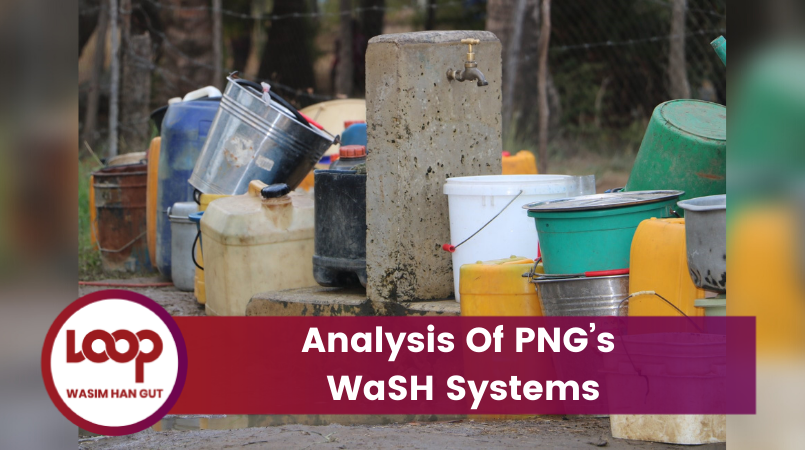
Since 2008, the World Health Organization has been implementing the Global Analysis and Assessment of Sanitation and Drinking-Water (GLAAS) on behalf of UN Water.
This is to specifically monitor the strength of water, sanitation and hygiene (WaSH) systems in member countries.
The GLAAS report is an information tool that benchmarks the status of WaSH among countries by identifying enablers and barriers to achieving WaSH systems and services for all.
Aimed at creating and strengthening government-led platforms, GLAAS provides a forum to reinforce multi-sectoral coordination and stakeholder engagement among WaSH actors for service delivery.
The GLAAS complements sector review process and reports on status of WaSH systems under four focus areas:
- Section A: Governance
- Section B: Monitoring
- Section C: Human Resources, and
- Section D: Finance
The GLAAS Survey process is led and coordinated by designated GLAAS National Focal Persons to ensure data accuracy.
In PNG, the GLAAS National Focal Person, Ray Kangu, from the National Department of Health (NDoH), is responsible for compiling and reconciling all responses as well as submission to the WHO.
The GLAAS 2021/2022 Survey validation process aims to provide a forum to undertake joint dialogue with WaSH stakeholders and to inform, engage and consult with on state of WaSH systems and services for all.
The specific objectives of this GLAAS consultations and workshop was to:
- Collect and consolidate multi-sources WaSH data from various WaSH stakeholders in PNG for reporting to the GLAAS team at WHO.
- Strengthen the familiarity of the different WaSH stakeholders in PNG with how the consolidated findings can be used, with the GLAAS methodology as an instrument, to complement existing sector assessments and as support to country Sustainable Development Goal 6 (SDG6) progress measurement and monitor WaSH in COVID-19 readiness.
In the last 10 years, PNG has been involved in 3 GLAAS reporting cycles. These are in 2016, then in 2018 and again now in 2022.
Participants that attended this workshop included both state and non-state actors with active engagement in the WaSH sector at various levels.
The outcome of the consultative workshop, which ended on Friday 11th March 2022, is a report on PNG’s Global Analysis and Assessment of Sanitation and Drinking-Water (GLAAS), which will be presented to UN Water in June of this year.
On the sidelines of the event, PNG WASH Consortium coordinator, Turea Wickham from World Vision, indicated that preliminary data from the survey process shows that PNG will have a challenge in meeting SDG 6, which is aimed at having access to sustainable water and sanitation for all by 2030.
Wickham challenged political parties taking part in the 2022 elections to have clear and intentional policies on WaSH, as current coverage was low. She encourages the electorate to ask vying MPs to state their policies and commitments to WaSH which they could track.
The 2022 GLAAS process was supported by the Australian government through its ‘Water for Women Program’, which supports the PNG WASH Consortium.
